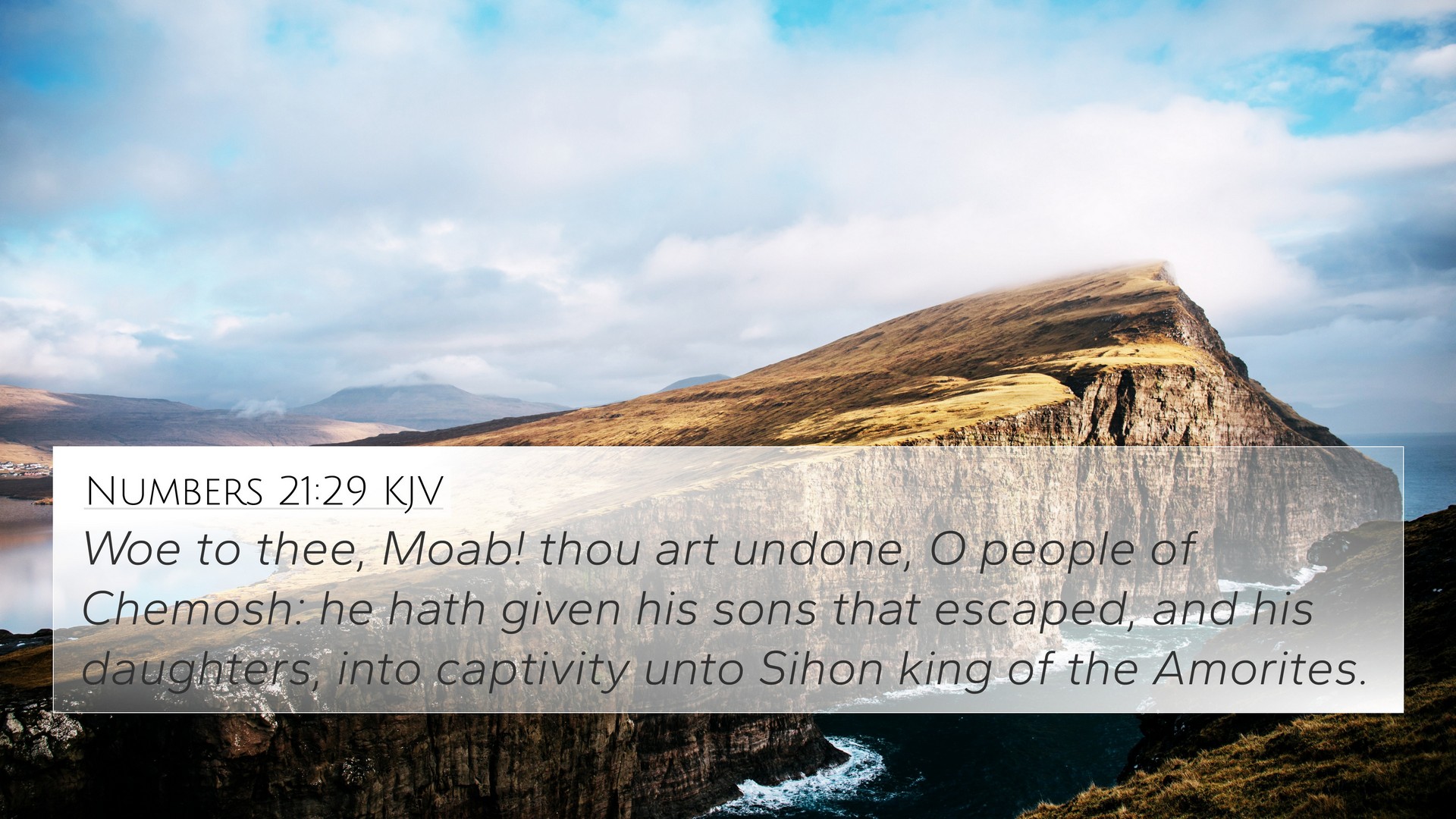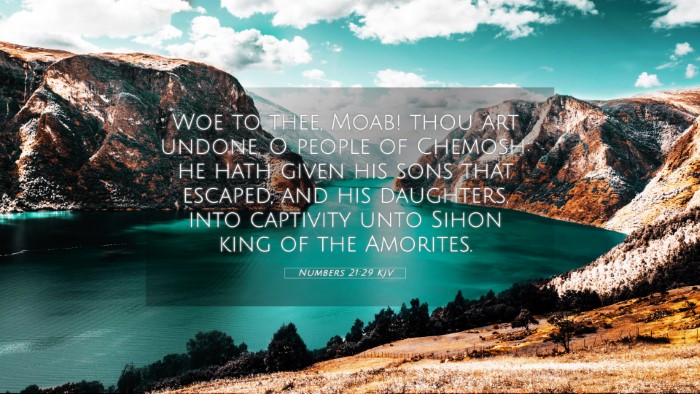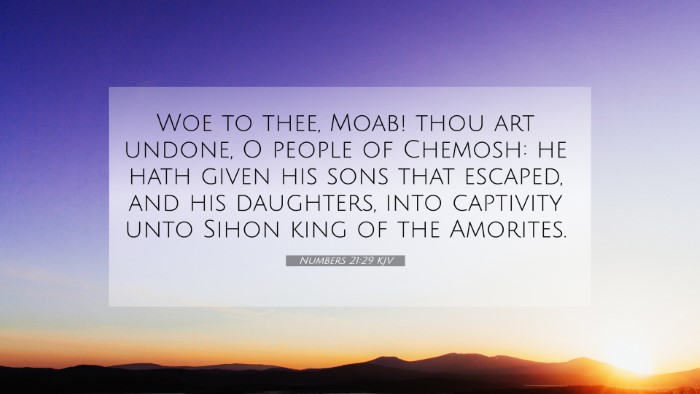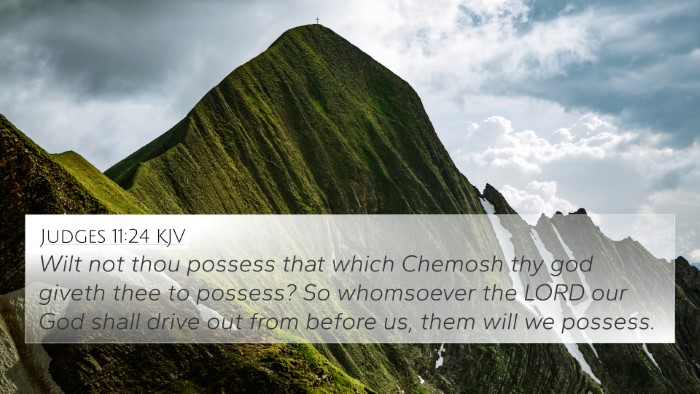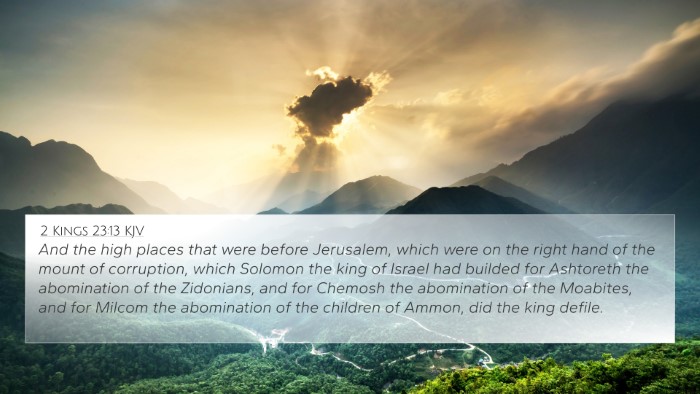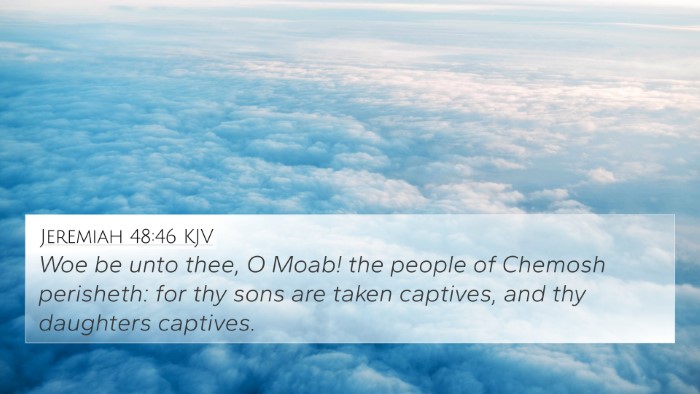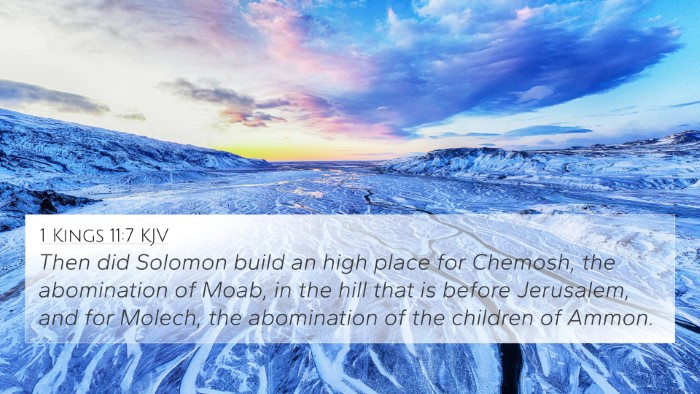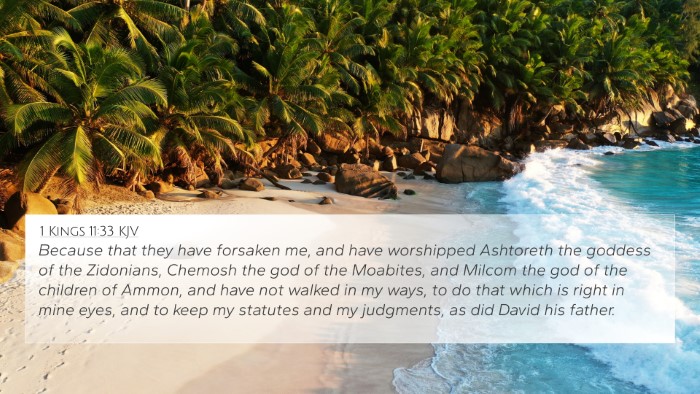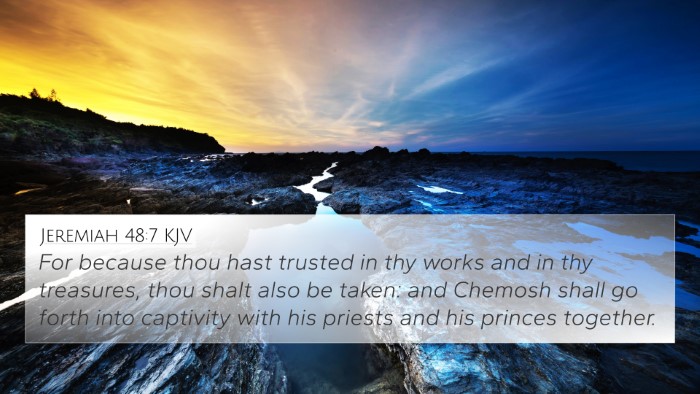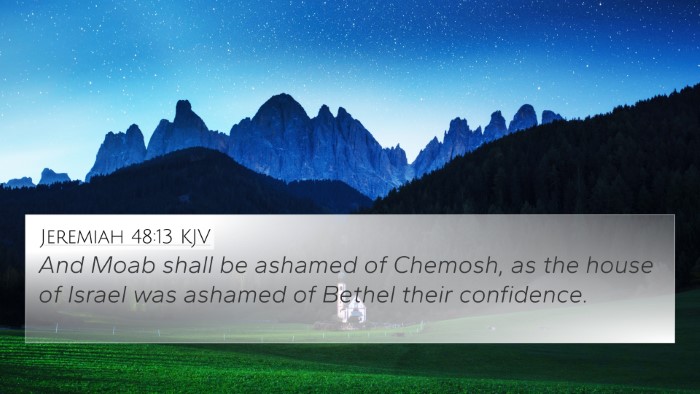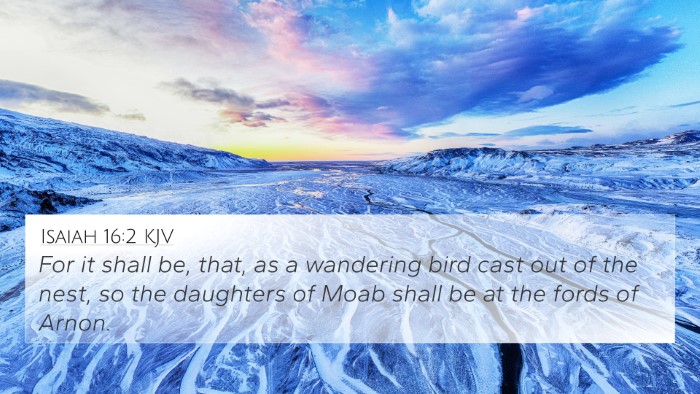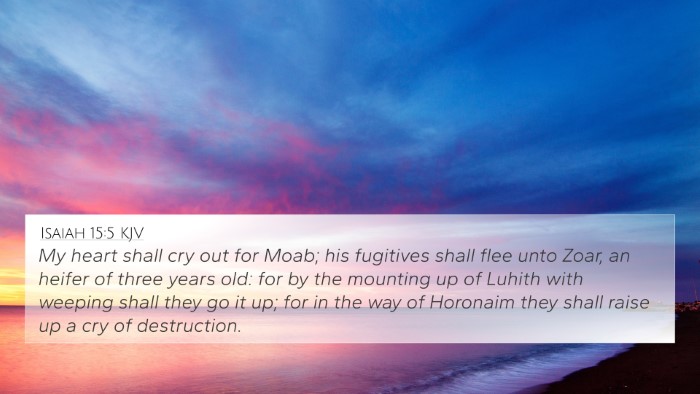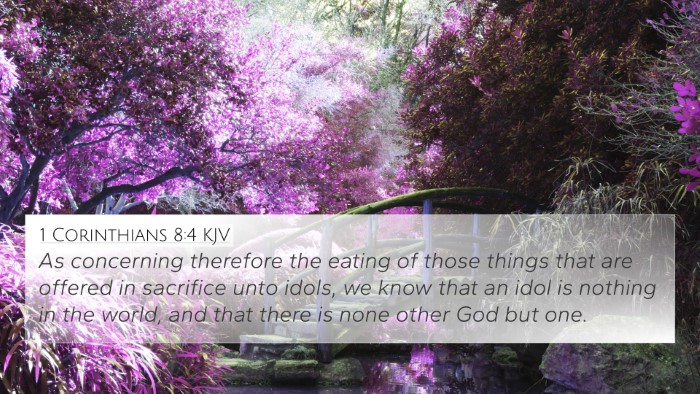Understanding Numbers 21:29
Numbers 21:29 states: "Woe to you, Moab! You are destroyed, O people of Chemosh! He has given his sons as fugitives and his daughters into captivity to an Amorite king." This verse carries significant weight within the narrative of Israel's journey through the wilderness and their encounters with surrounding nations.
Contextual Background
The Moabites were descendants of Lot, and their interactions with Israel were marked by hostility and conflict. At this time, Israel was victorious over the Amorites, and the mention of Chemosh, the god of Moab, highlights the theme of idolatrous worship and divine judgment.
Commentary Insights
- Matthew Henry: Henry emphasizes that God's judgment upon nations opposing His people is a recurring theme. Moab's fate is a warning against idolatry and rebellion against God's commands.
- Albert Barnes: Barnes notes the historical context, highlighting the role of Chemosh in Moabite worship. He indicates that Moab's destruction serves as a testament to the reality of divine intervention in the affairs of nations.
- Adam Clarke: Clarke elaborates on the figurative language, interpreting the verse as a lament for Moab’s downfall and addressing the consequences of rejecting God in favor of false idols.
Thematic Connections
This verse connects profoundly with the overarching narrative of Israel's journey and their confrontations with idolatrous nations. It serves to illustrate the dangers of straying from faithfulness to the Lord.
Scriptural Cross-References
- Jeremiah 48:1-10: A prophetic declaration against Moab that recalls its doom.
- Isaiah 15-16: A lament over Moab’s destruction, providing thematic parallels.
- Romans 1:25: A reference to the exchange of true worship for false idols, echoing Moab's sin.
- Deuteronomy 23:3: Prohibition against Moab entering the assembly of the Lord, indicating their contempt for Israel.
- Joshua 24:9-10: Remembering God's past deliverance of Israel from their enemies, including Moab.
- Micah 6:5: A reminder of the history of Israel's deliverance from Moab, reinforcing the prophetic message.
- 1 Corinthians 10:20: A warning about participating in idolatry akin to the worship of Chemosh.
Connecting Themes Across Scripture
The themes of divine judgment, the futility of idols, and the sovereignty of God resonate through these cross-references. The interconnectedness of these verses demonstrates the Bible's cohesive message regarding the consequences of turning away from God.
Conclusions
The study of Numbers 21:29 invites readers to reflect on the challenges of faithfulness amidst cultural pressures. The downfall of Moab serves as both a warning and a lesson in recognizing the supremacy of God over all earthly powers and idols.
Tools for Deeper Study
For those interested in further exploring the themes and connections within the Bible, consider using a Bible concordance or a Bible cross-reference guide. These resources can aid in understanding the intricate web of connections between Bible verses and facilitate a richer study of Scripture.
Further Reflection
In your study, ask yourself:
- What lessons can I draw from the downfall of Moab?
- How do the warnings against idolatry apply today?
- What parallels can I find between these ancient texts and my own spiritual journey?
